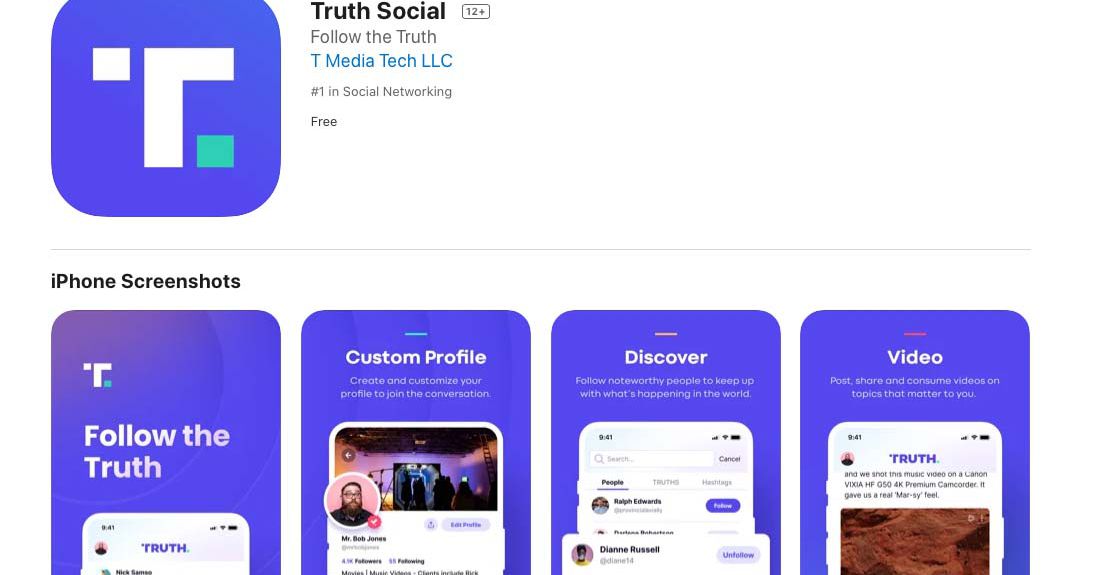TikTok Takes on Twitter with Text-Only Posts
The popular short-video app TikTok has made a calculated decision to increase the breadth of its offering. TikTok has announced […] The post TikTok Takes on Twitter with Text-Only Posts appeared first on ReadWrite.

The popular short-video app TikTok has made a calculated decision to increase the breadth of its offering. TikTok has announced the addition of text-only posts in an effort to capitalize on the recent turmoil at Twitter. With this new addition, users will have a place to share their written works alongside their visual ones.
The addition of text-only posts is indicative of TikTok’s dedication to experimentation and the expansion of creators’ options. Users will be able to post content based on text and select from a number of different backgrounds. Like Instagram Stories, these textual updates can include hashtags and user tagging to boost interaction and visibility.
Using colored backgrounds and stickers, users are now able to express themselves creatively and uniquely through text posts. With a maximum of 1,000 characters per post, TikTok encourages users to be succinct while making an impression.
TikTok’s move into text-only posts is more than just a tweak; it’s a calculated attempt to compete with Twitter and Meta’s Threads. TikTok hopes to capitalize on the fact that users of Twitter, which Elon Musk recently rebranded as “X,” may be looking for alternatives. TikTok’s goal is to offer a compelling alternative to the current market leaders by catering specifically to text-based content.
Instagram’s new text-only app, Threads, is making waves in the online community. While it received a lot of attention at first, with 100 million sign-ups in less than five days, Forbes reports that the number of daily active users has dropped by 70%. TikTok plans to implement a text-only posts feature, and it plans to do so by studying the success of Threads and capitalizing on its current user base.
According to the company’s website, TikTok has more than a billion users all over the world. TikTok’s audience is known for being young, but Instagram has a larger user base (2.3 billion). According to a recent study conducted by the UK Communications watchdog, TikTok has surpassed YouTube and Instagram as the preferred news platform for young people aged 12 to 15. Given its target audience’s preponderance, TikTok has a leg up on the competition when it comes to text-based content.
Since Twitter’s ad revenue dropped by half in July, the company has been struggling financially. As a result of this decline, new competitors have emerged, such as TikTok, which is capitalizing on the situation by offering its own video-sharing platform. Elon Musk’s purchase of Twitter has shook up the social media world, making it a fertile ground for TikTok’s text-only posts.
While the introduction of text-only posts on TikTok is exciting, the app has had its share of controversy since its inception. Concerns about TikTok’s ties to China have led governments in Canada, the United States, the United Kingdom, and Australia to limit its use on government-owned devices. Concerns about privacy and security have been heightened by the news that TikTok staff in China have access to data belonging to Australian users.
TikTok continues to work toward its goals of gaining users’ trust and providing a secure platform for them despite these controversies. TikTok’s goal is to be seen as a trustworthy and respected platform for content creation, and it plans to achieve this by constantly enhancing its security measures and addressing privacy concerns.
In summary, TikTok has taken a major step in its ongoing efforts to expand its features and attract users with the introduction of text-only posts. TikTok hopes to attract users looking for an alternative to Twitter and Meta’s Threads by providing a forum specifically for written expression. TikTok has the potential to become a major player in the text-based content space due to its large user base and young demographic. However, for the platform’s long-term success, it must avoid controversies and cultivate trust.
First reported on Reuters
Frequently Asked Questions
Q. How does TikTok’s text-only posts feature differ from its existing content format?
TikTok’s text-only posts feature allows users to share written content without the need for accompanying visuals or videos. Unlike the platform’s signature short-video format, text-only posts focus solely on written expression, giving users a new way to communicate and connect with their audience.
Q. Why is TikTok expanding into text-based content?
The addition of text-only posts is a calculated move by TikTok to tap into the growing demand for written content and to capitalize on the recent turmoil at Twitter and Meta’s Threads. By offering a dedicated space for text-based communication, TikTok aims to attract users looking for alternatives to traditional social media platforms.
Q. How does TikTok plan to make its text-only posts appealing to users?
TikTok is taking inspiration from the success and lessons learned from Instagram’s text-only app, Threads. By studying the user behavior and response to Threads, TikTok plans to implement a text-only posts feature that resonates with its existing user base and drives engagement.
Q. What advantages does TikTok have in the text-based content space?
With a user base of over a billion users worldwide, primarily comprising young people, TikTok has a considerable advantage in the text-based content space. The platform’s popularity among the younger demographic sets it up for success in attracting users seeking a fresh and engaging written expression platform.
Q. What are the potential challenges TikTok may face with text-only posts?
Despite its popularity, TikTok has faced controversies related to privacy and security concerns, particularly with its ties to China. To ensure the success of its text-only posts feature, TikTok must continue its efforts to address these concerns, gain users’ trust, and cultivate a safe content creation environment.
Q. How has the recent financial struggles of Twitter impacted TikTok’s decision to introduce text-only posts?
Twitter’s financial struggles have created an opportunity for competitors like TikTok to enter the market and provide alternative platforms for users. By introducing text-only posts, TikTok aims to capitalize on the current situation and attract users seeking new content creation options.
Q. How can TikTok ensure the success of its text-only posts feature?
To ensure the success of its text-only posts feature, TikTok must invest in effective marketing and user engagement strategies. Regular updates, user feedback, and improvements to the feature’s functionality will be essential to keep users engaged and satisfied.
Q. Will TikTok’s text-only posts feature face legal challenges due to the use of the letter “X”?
The use of the letter “X” in TikTok’s rebranding as “X” may lead to legal challenges from companies that hold intellectual property rights to the letter “X.” TikTok will need to navigate potential trademark disputes and ensure that its rebranding complies with relevant laws and regulations.
Q. How will TikTok handle potential legal challenges related to its rebranding as “X”?
TikTok will need to consult legal experts and conduct thorough research to ensure that its rebranding as “X” does not infringe on existing trademark rights. The company must be prepared to address legal challenges and defend its branding decisions in court if necessary.
Featured Image Credit: Unsplash
Aaron Heienickle
Technology Writer
Aaron is a technology enthusiast and avid learner. With a passion for theorizing about the future and current trends, he writes on topics stretching from AI and SEO to robotics and IoT.

 Konoly
Konoly 






























.jpg&h=630&w=1200&q=100&v=f776164e2b&c=1)

